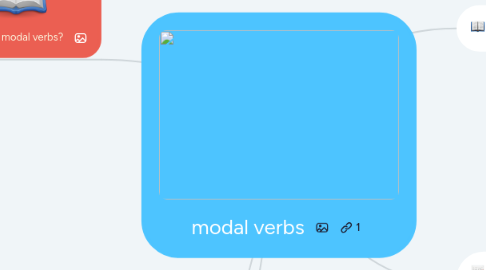
1. concept
1.1. A modal verb is an auxiliary verb (that is, dependent on another) that is used to indicate what is called "modality": ability, possibility, permission or obligation. In English, these verbs are necessary because verb tenses are not enough to express ideas such as uncertainty or possibility: there is no verb tense like the Spanish subjunctive, for example. Therefore, we understand these verbs and knowledge to use them correctly is essential to be able to express ourselves in English
1.2. What is a modal verb?
2. The golden rules for using modal verbs correctly
2.1. They are always followed by a verb in the infinitive, since they have no meaning for themselves. Normally this verb does not lead to, although there are some exceptions that are also considered modal verbs: be able to, need to, have to and ought to. Do not conjugate, that is, do not add -s in the third person singular and have no past or future. Nor do they have infinitive, compound or progressive times. In the interrogative and negative forms, they do not need to add the auxiliary (do or does). For example: Can you come with me tomorrow?
3. What are the modal verbs?
3.1. Can:
3.1.1. it can be translated as "power" in Spanish and expresses skill or possibility. For example
3.1.1.1. It is also used to ask for permission or ask if something is possible:
3.1.1.2. I have some sugar in my tea, please?
3.1.2. can speak English fluently.
3.2. Could
3.2.1. It is the can's past form. It can also be used for questions with the same meaning as can, but it is more formal.
3.2.2. Could you please help me with my English pronunciation?
3.3. Will
3.3.1. it is used to form the future, since there is no specific verb tense to do this in English. It also serves to request favors or information
3.3.1.1. A more formal version of will is shall.
3.3.2. Will they cover your travel expenses on the trip?
3.4. Should
3.4.1. Similar to the Spanish "Duty", it is used to express obligations and recommendations.
3.4.1.1. It can also be used to ask for opinion or standards
3.4.1.2. Should I sit here?
3.4.2. You shouldn’t smoke
3.5. Must
3.5.1. expresses a stronger obligation, prohibition or necessity than in the previous verb
3.5.1.1. It can also serve to indicate something that we consider probable
3.5.1.2. the movie must be great, everyone it’s talking about it.
3.5.2. You must do your homework or you will never pass.
3.6. Would
3.6.1. to ask something politely and indicate our preferences and wishes
3.6.1.1. It also forms the conditional in English
3.6.1.2. f I were rich, I would like to travel around the world.
3.6.2. I would rather go to Ireland than to U.K.

